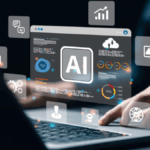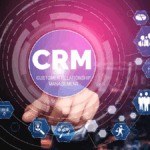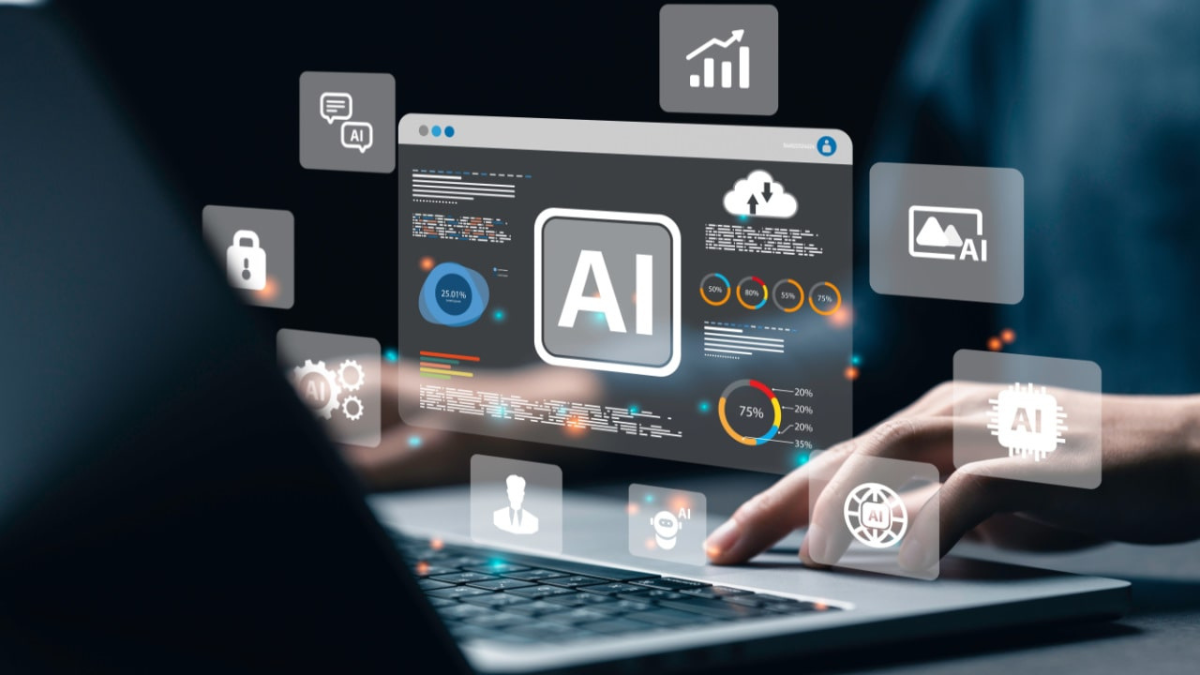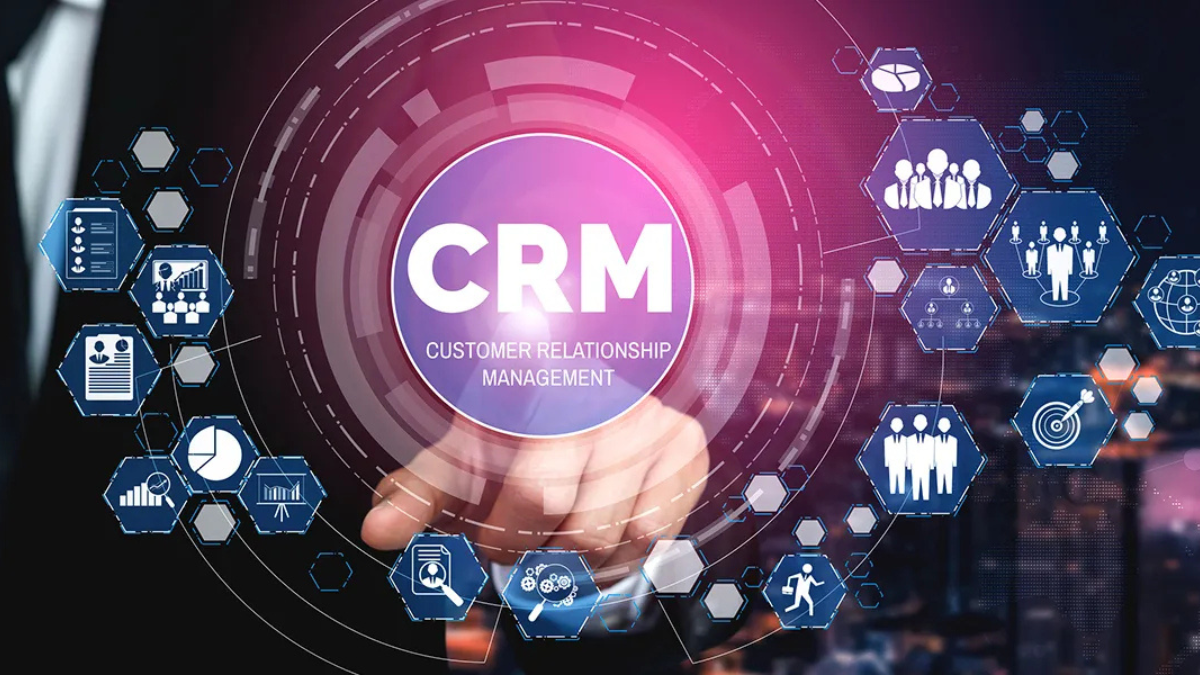Customer Relationship Management (CRM) systems have transformed how businesses interact with their customers. In today’s hyper-connected, data-driven world, AI (Artificial Intelligence) is taking CRM to the next level by infusing intelligence into every customer touchpoint. From personalized marketing to predictive analytics, AI has emerged as a powerful force shaping the future of CRM.
In this article, we will explore how AI is revolutionizing modern CRM systems, the benefits it offers, its applications across industries, and what the future holds.
Understanding AI in CRM
What is AI-Powered CRM?
AI-powered CRM refers to CRM systems integrated with machine learning, natural language processing (NLP), and data analytics. These technologies enable businesses to automate repetitive tasks, gain deep insights into customer behavior, and deliver personalized customer experiences at scale.
Key Components of AI in CRM
- Machine Learning (ML): Learns from past interactions and customer data to predict future behavior.
- Natural Language Processing (NLP): Enables chatbots, sentiment analysis, and voice recognition.
- Predictive Analytics: Analyzes customer data to forecast trends and behaviors.
- Automation Tools: Reduce manual workload through smart workflows and task delegation.
Benefits of AI in CRM Systems
1. Enhanced Customer Experience
AI enables CRM platforms to tailor interactions based on customer preferences, behaviors, and history. This results in:
- Personalized emails and product recommendations
- Predictive assistance before customer asks
- Faster and more accurate customer service
2. Increased Productivity and Efficiency
AI automates repetitive and mundane tasks such as data entry, follow-up emails, and lead scoring. This allows sales and support teams to focus on high-value activities.
3. Improved Data Accuracy
With AI, CRM systems can clean, enrich, and validate customer data, reducing the risk of errors and outdated records.
4. Smarter Decision-Making
AI provides actionable insights through analytics dashboards, helping managers make informed decisions based on real-time data and trends.
5. Cost Reduction
By automating tasks and improving efficiency, businesses can reduce costs associated with customer acquisition, service, and retention.
Key AI Applications in CRM
Predictive Lead Scoring
AI analyzes lead data (demographics, online behavior, interactions) to score leads based on their likelihood to convert. This helps prioritize efforts on high-value prospects.
Chatbots and Virtual Assistants
Chatbots powered by NLP can answer FAQs, schedule appointments, and guide customers 24/7—improving response times and reducing human workload.
Sentiment Analysis
AI algorithms scan emails, support tickets, and social media posts to detect customer sentiments. This helps businesses proactively manage dissatisfied customers and tailor engagement strategies.
Sales Forecasting
AI models historical data and current trends to predict future sales with remarkable accuracy. This helps in better resource planning and goal setting.
Email Personalization
AI segments audiences and tailors content based on behavior, preferences, and past engagement, boosting open and click-through rates.
Customer Churn Prediction
AI detects signs of customer dissatisfaction and declining engagement, allowing businesses to intervene and retain them before they churn.
How Different Teams Benefit From AI-Driven CRM
Sales Teams
- Automated lead scoring
- Intelligent deal recommendations
- Smart follow-up reminders
Marketing Teams
- Hyper-targeted campaign creation
- Real-time campaign performance analysis
- Automated content recommendations
Customer Service Teams
- Intelligent routing of queries
- AI-based ticket classification
- 24/7 virtual assistance
Real-World Use Cases of AI in CRM
Retail
AI-powered CRMs in retail help analyze customer purchase behavior and recommend personalized deals and discounts, boosting upsells and customer loyalty.
Healthcare
In healthcare, AI-driven CRM systems track patient interactions and help provide timely reminders for appointments and medications, improving patient care and compliance.
Banking & Finance
Financial institutions use AI in CRM to detect fraudulent behavior, predict customer financial needs, and personalize offers like loans or investment plans.
E-commerce
E-commerce businesses use AI in CRM for intelligent product recommendations, automated abandoned cart emails, and dynamic pricing strategies.
Challenges of Integrating AI with CRM
Data Privacy and Compliance
With more data comes greater responsibility. Businesses must ensure GDPR, HIPAA, or other local compliance regulations are followed when collecting and using data for AI.
Integration Complexity
Adding AI capabilities to legacy CRM systems can be technically challenging and require IT expertise and investment.
Cost of Implementation
AI integration isn’t cheap. Initial investments in infrastructure, tools, and training can be substantial for small businesses.
Employee Adaptation
Teams may resist new AI tools fearing job loss or complexity. Businesses need to invest in training and change management to ensure smooth adoption.
The Future of AI in CRM Systems
As AI technologies mature, CRM systems will evolve to become even more intuitive, predictive, and autonomous. Here are some emerging trends:
Voice-Powered CRM
Voice recognition will enable sales and support teams to log data, retrieve customer information, and send updates hands-free.
Hyper-Personalization
AI will enable real-time customer journeys, where every interaction (email, call, or website visit) is uniquely tailored based on previous behavior.
Emotion AI
Beyond sentiment, emotion AI will understand customer emotions via voice tone, facial expressions (in video calls), and language patterns.
Self-Learning Systems
Future CRM systems will continuously learn from interactions, improving accuracy, personalization, and customer satisfaction over time.
How to Get Started with AI in Your CRM
- Audit Your Current CRM: Assess existing workflows, tools, and data quality.
- Define Use Cases: Identify the problems you want AI to solve (lead scoring, service automation, etc.).
- Choose the Right AI Tools: Select platforms with built-in AI capabilities or compatible third-party tools.
- Train Your Teams: Educate staff on new workflows and benefits of AI-driven processes.
- Monitor & Optimize: Regularly review AI outputs, adjust algorithms, and improve training data.
Conclusion
AI is not just a CRM add-on—it’s a transformative force redefining how businesses connect with their customers. By embedding intelligence into every interaction, AI-powered CRM systems enable businesses to be more proactive, predictive, and personal in their customer relationships.
As technology continues to evolve, companies that embrace AI in CRM will be better positioned to understand customer needs, deliver exceptional service, and drive long-term loyalty. Whether you’re a small startup or an enterprise, integrating AI into your CRM is no longer a luxury—it’s a necessity for sustainable growth.
FAQs
1. How does AI improve CRM performance?
AI automates routine tasks, enhances personalization, improves customer insights, and streamlines sales and marketing processes for better efficiency.
2. Can small businesses afford AI-powered CRMs?
Yes, many cloud-based CRM providers offer scalable AI features suitable for small to mid-sized businesses at affordable pricing tiers.
3. Is AI in CRM safe and secure?
When implemented with proper data privacy policies and compliance (like GDPR), AI can be secure. Businesses must ensure ethical use of customer data.
4. What are the top AI features in modern CRMs?
Popular features include predictive lead scoring, chatbot support, sentiment analysis, sales forecasting, and personalized content recommendations.
5. Will AI replace CRM professionals?
No, AI will augment human capabilities by automating routine work, allowing CRM professionals to focus on strategy, relationship-building, and creative problem-solving.









